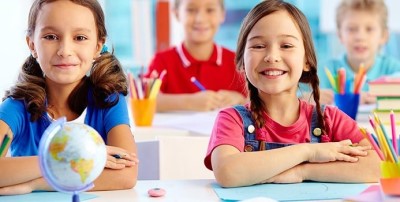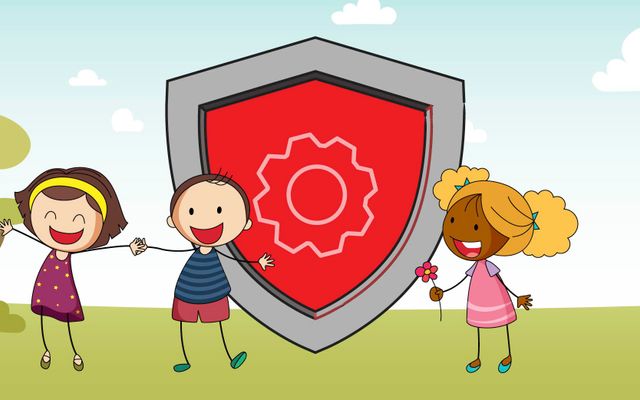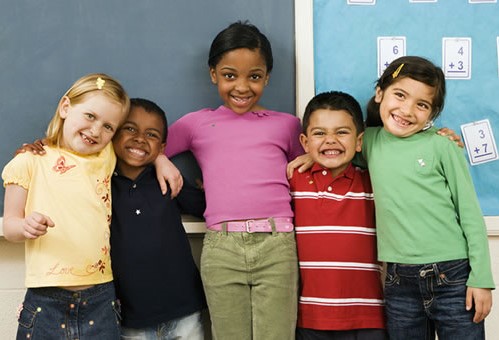
Education at the primary level
The developed world looks at this stage as the basic stage for educating young people and qualifying them to conform with society and interact with it, and to the extent that attention is paid to this stage, the individual becomes able to contribute to the progress and advancement of society. The second environment for the student after the family, as it is the beginning stage in his personal formation from the age of six, the beginning of assignment to the age of twelve, the age of discernment from his age, as it includes middle childhood and late childhood [6-12]
This stage is considered the beginning of the scientific and intellectual inscription in the mind of the student, which continues with him throughout his life . It is the stage of the fertile field in which we must sow the seeds of his future social life
From the above it is clear to us that the primary stage is the first step in the educational, scientific and intellectual path of the student, and its importance is highlighted in the following:

1
Meets the needs of students during the early years
Primary education is very important for students in the early school years, as it meets the needs of students during the first few years of school life, it also aims to ensure the growth of children, and the development of their social, cultural, emotional, physical and cognitive skills, which makes it very important for children.

2
Primary education improves students' awareness
Also, primary education improves students’ awareness and opens up opportunities for a better life. It also reduces intergenerational poverty. It affects the child’s academic progress; It is the incubator for the next generation of leaders, thinkers and innovators, as it teaches the independence and confidence of the child.

3
Primary education is the basis for future intellectual developments
Primary education is the right time to provide a supportive atmosphere, defend individuality and introduce different values to the child; Therefore, it is measured as a basis for future intellectual developments, through which moral education and human sciences are combined, and it develops through moral education positive feelings and outlook in the early stage of childhood.

4
Primary education helps nations develop
The development of nations mainly depends on the level of education that reaches the population of different countries, regardless of class, race, or any other considerations. Education is also an important milestone for national development, and it works to improve opportunities for both sexes, through access to educational institutions, Including primary schools.

5
Protecting children from violence or exploitation
Children who are deprived of access to primary education are at greater risk of suffering from violence or exploitation, especially when the deprivation is the result of some natural disasters. Many studies show that girls are more vulnerable to violence and exploitation if they are deprived of education, especially primary; They face increased risks such as human trafficking.

6
Primary education supports social and emotional development
It is very important for children to spend time with some other children, especially when each one of them belongs to different cultures and environments, and primary education helps with these encounters as well as through group activities, which helps to develop social interaction in the child. It also teaches the child the foundations of respect for the other, teaches him to differentiate between right and wrong, the way to resolve conflicts and plan things, and teaches him self-confidence and independence as well.

7
Primary education improves reading and communication skills
Reading and social communication skills are directly related to the primary education of the child, as it is in these basic stages that the child’s language and mental development begins, as well as the development of communication skills, so primary education is important and necessary for the development of the child in general. The child’s access to a poor primary education has many negative effects on the child and his future. Poor or absent education leads to illiteracy and ignorance. Primary education is the most important stage of education for children, and it is also very important for the development of the general conditions of a country.

Elementary school characteristics
The primary stage is characterized by several characteristics that make it an important stage in the student’s life, and the teacher must realize these characteristics to play an active and positive role, and these characteristics include:
Accustom the child at this stage to good behaviors. At this stage, the child aspires to learn everything new, and these behaviors include sitting correctly in class, properly carrying the bag so as not to hurt his back, and maintaining personal hygiene, class cleanliness, and the surrounding environment.
baby muscle training; At this stage, small and large muscles grow and the child needs to train these muscles to use them well and increase their strength. The teacher can make them play physical games such as football or going up and down the stairs several times, and the availability of educational panels in a stereoscopic form helps the child to touch and feel them.
Writing courses and textbooks in a clear handwriting so that every child can read and understand.
Increasing the child's awareness through recreational and educational school trips. When the child sees what he is taking in school on the ground, he feels it, believes it and is rooted in his mind.
Training children to read and write calmly and patiently. These skills are not easy for a child who is not aware of or practiced, and at this stage, if he is properly taught, he will accept education and increase his scientific capabilities in the future.
Teaching children to be constructive criticism and to express their opinions with boldness and manners, and to remain firm on the right opinion.

Life skills for child development in the primary stage
The skills that a child can acquire at the age of (7-3) vary, and these skills are very important in developing the child’s abilities and skills towards learning and dealing with others. There are multiple life skills that a child can acquire through play and education, and the following is an explanation of them:
1
Critical thinking skill
The importance of the critical thinking skill lies in helping the child to make a decision and analyze the situation, by playing with others or alone in a creative way so that it achieves all the basic elements of critical and creative thinking. plays and so on.
2
Independence skill
The child should be trained to complete household chores and daily activities on his own, and assisted if necessary without permanent and direct interference; Creating his own space and helping him to make a decision at the right time, and assigning him some simple tasks to do to the fullest at a certain time that will increase the child's confidence in himself and his ability to be independent.
3
Problem solving skill
The child in the early age stage is characterized by his tendency towards discovery and experiment, and accordingly the percentage of his occurrence in errors and problems is great, so the mother must first give confidence to her child in order to face the error and bear it and help to get out of it in a correct manner. Such a skill.

4
Self Empowerment Skills
Self-empowerment skills are among the basic axes that a child must possess in the primary stage, and they can be defined as directing the child’s abilities to communicate with others by enhancing his self-confidence, managing himself, and developing his personality through daily academic and social activities. The following are the most prominent of these skills:
communication skill
The child is distinguished by his love of getting to know and communicating with other children by playing or studying; Therefore, this instinct must be directed to support and enhance communication skill in order to build strong social and emotional skills for him, so the teacher or parents should help their children acquire them.
Self management skills
Self-management and self-control is one of the life skills that should be strengthened in children by increasing the focus on daily activities and making them do them on their own to motivate them to be independent, such as arranging toys, clipping nails, cleaning the room, solving games that require concentration such as puzzles, reading stories short and others

5
Sharing skill
The skill of sharing is one of the life skills that a child learns at an early age. Therefore, parents should enhance this skill through some behaviors as follows:
Encouraging the child to play with others, by exchanging toys and interacting with them in a healthy and healthy manner.
Enhancing the concept of participation by talking with the child with some interactive and participatory words, for example this is your friend's game, it's your turn, sit together and so on.
6
The skill of respecting diversity
Parents at home should teach the child to respect diversity and difference from an early age. Each child has his own form in which he differs from other peers, and to communicate the idea of not distinguishing between him and others and to comment on others for a specific reason, whatever it may be.
